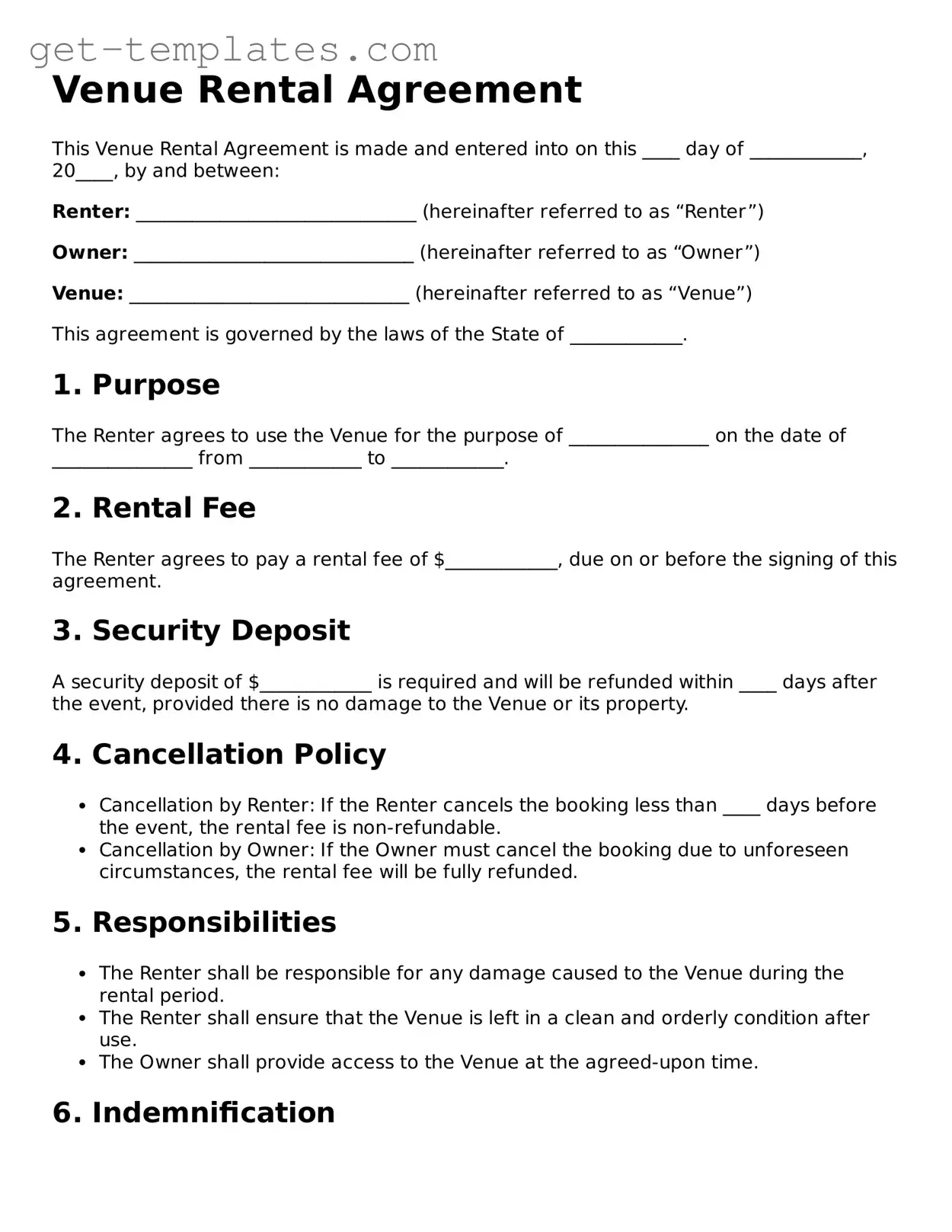Attorney-Approved Venue Rental Agreement Form
The Venue Rental Agreement is a crucial document that outlines the terms and conditions for renting a space for events. This agreement protects both the venue owner and the renter by clearly defining responsibilities, fees, and policies. Understanding its components can help ensure a smooth and successful event experience.
Get Document Online

Attorney-Approved Venue Rental Agreement Form
Get Document Online
You’re halfway through — finish the form
Finish Venue Rental Agreement online — edit, save, download made easy.
Get Document Online
or
⇓ PDF Form
